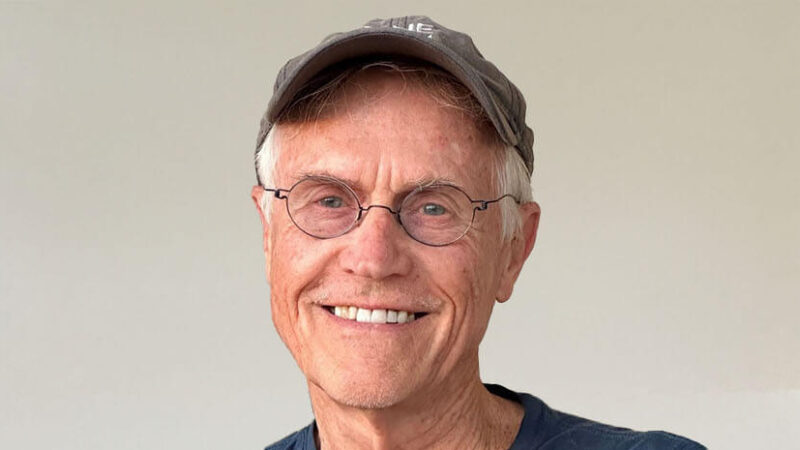Embark on the Journey to Restoration

Daring to Rest by Karen Brody
What if you could reboot your health, tap into your creative self, reclaim your wild nature, lead from your heart—and still feel well rested?
As modern women, we’re taught that we can do it all, have it all, and be it all. While this freedom is beautiful, it’s also exhausting. Being a “worn-out woman” is now so common that we think feeling tired all the time is normal. According to Karen Brody, feeling this exhausted is not normal—and it’s holding us back. In Daring to Rest, Brody comes to the rescue with a 40-day program to help you reclaim rest and access your most powerful, authentic self through yoga nidra, a meditative practice that guides you into one of the deepest states of relaxation imaginable.
It’s time to lie down and begin the journey to waking up.

Sabbath by Wayne Muller
The Sacred Rhythm of the Sabbath and How to Restore It in Your Own Life
Toward the end of his life, Thomas Merton warned of a “pervasive form of contemporary violence” that is unique to our times: overwork and overactivity. In his work as a minister and caregiver, Wayne Muller has observed the effects of this violence on our communities, our families, and our people. On Sabbath, he responds to this escalating “war on our spirits,” and guides us to a sanctuary open to everyone.
Muller immerses us in the sacred tradition of the shabbat (the day of rest) a tradition, Muller says, that is all but forgotten in an age where consumption, speed, and productivity have become the most valued human commodities. Inviting us to drink from this “fountain of rest and delight,” he offers practices and exercises that reflect the sabbath as recognized in Christianity, Judaism, and Buddhism. Through this way of nourishment and repose, Muller teaches, we welcome insights and blessings that arise only with stillness and time.
Rich with meditations, poems, and inspiring true stories, Sabbath asks us to remember this most simple and gracious of all spiritual practices.

iRest Meditation by Richard Miller, PhD
A Proven Meditation Program for Profound Relaxation and Healing
Deep rest and relaxation are critical elements in healing—yet we rarely experience truly profound rest. Even with proper exercise and sleep, we continue to hold stress, tension, and trauma in the body. Over the past 45 years, Dr. Richard Miller has developed a program for deep relaxation, healing, and rejuvenation called iRest (Integrative Restoration). In iRest Meditation, he offers a complete training in this proven method, which is being used by the military to treat PTSD and has been shown through research to reduce depression, anxiety, insomnia, and chronic pain—as well as improve sleep, resiliency and well-being.
Based on a modern evolution of the ancient practice of Yoga Nidra, the easy-to-learn iRest program provides a flexible toolbox of meditation practices that you can incorporate into your lifestyle to carry you through adversity. In these six audio sessions, Dr. Miller takes you step-by-step through a progressive series of guided exercises for managing stress utilizing the breath and body, decoding and balancing your emotional state, connecting you with deep inner resources that replenish your vital energy and sustain you regardless of your circumstances.

Recovering Joy by Kevin Griffin
Addiction recovery requires a serious commitment, yet that doesn’t mean it has to be a bleak, never-ending struggle. “Recovering takes us through many difficult steps of discipline, humility, and self-realization,” says Kevin Griffin. “In doing so, many of us forget that we are capable and deserving of basic happiness.” With Recovering Joy, Kevin Griffin fills in what is often the missing piece in addiction recovery programs: how to regain our ability to live happier lives. Whether you’re in recovery or know someone who is, this book is a resource of valuable guidance and self-reflection practices for:
- Rediscovering a sense of purpose and our own value through our work, relationships, and contribution to the world
- Developing personal integrity by living up to our own moral and ethical beliefs
- Using our intelligence and creativity to their fullest extent—at work and at home
- Cultivating a rich inner life that includes a sense of connection—whether expressed in our spirituality, our interactions with others, or our relationship to the natural world
- Bringing an element of fun into our lives—learning to embrace our own sense of humor as a resource for healing

The Force of Kindness by Sharon Salzberg
Distill the great spiritual teachings from around the world down to their most basic principles, and one thread emerges to unite them all: kindness. In The Force of Kindness, Sharon Salzberg, one of the nation’s most respected Buddhist authors and meditation teachers, offers practical instruction on how we can cultivate this essential trait within ourselves.
Through her stories, teachings, and guided meditations, Sharon Salzberg takes readers on an exploration of what kindness truly means and the simple steps to realize its effects immediately. She reveals that kindness is not the sweet, naive sentiment that many of us assume it is, but rather an immensely powerful force that can transform individual lives and ripple out, changing and improving relationships, the environment, our communities, and ultimately the world. Readers will learn specific techniques for cultivating forgiveness; turning compassion into action; practicing speech that is truthful, helpful, and loving; and much more.





 Kelly Boys directed the launch of Google’s “Search Inside Yourself” leadership training program for neuroscience-based emotional intelligence and mindfulness. She’s taught war veterans, women in prison, cancer survivors, those with substance abuse addictions, humanitarian workers, and psychotherapists. She lives in Boulder, Colorado. More at kellyboys.org.
Kelly Boys directed the launch of Google’s “Search Inside Yourself” leadership training program for neuroscience-based emotional intelligence and mindfulness. She’s taught war veterans, women in prison, cancer survivors, those with substance abuse addictions, humanitarian workers, and psychotherapists. She lives in Boulder, Colorado. More at kellyboys.org.





